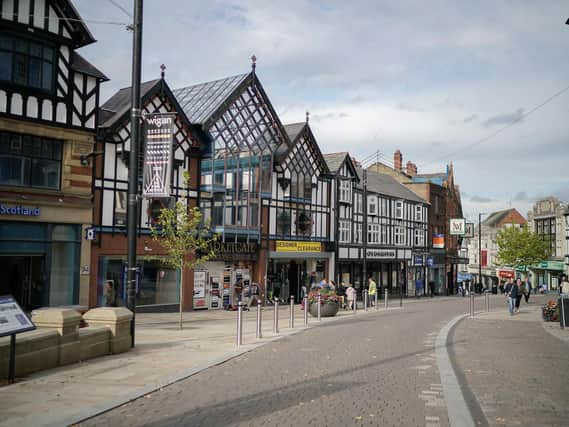Wigan faces generations of disadvantaged families, social mobility report warns


The commission has called on regional leaders to draw up tailored, sustained and local programmes to boost social mobility in the worst areas.
It also wants the Government to extend its current Opportunity Areas programme – which gives support to 12 councils – to include several more authorities identified as the areas with the most entrenched disadvantage.
Advertisement
Hide AdAdvertisement
Hide AdThe areas with the worst social mobility include Chiltern, Bradford, Thanet, Bolton, Wolverhampton, Kingston-upon-Hull, Fenland, Mansfield, Walsall, Gateshead, Kirklees, St Helens, Dudley, Bolton and Wigan, the report says.
It adds that in these areas, those from disadvantaged backgrounds and who are entitled to free school meals have little chance of making a better life for themselves or their families and earn much less than their more affluent peers.
Individuals aged 28 from disadvantaged families in these council areas earn on average just over half the amount of those from similar backgrounds in the most mobile areas, the study also found.
Interim co-chair of the Social Mobility Commission Steven Cooper described the findings as “very challenging”.
Advertisement
Hide AdAdvertisement
Hide Ad“They tell a story of deep unfairness, determined by where you grow up. It is not a story of North versus South or urban versus rural; this is a story of local areas side by side with vastly different outcomes for the disadvantaged sons growing up there,” Mr Cooper said.
The research, carried out by the Institute for Fiscal Studies (IFS) and UCL Centre for Education Policy and Equalising Opportunities (CEPEO), found that disadvantaged young adults in areas with high social mobility can earn twice as much as their counterparts in areas where it is low – over £20,000 compared to under £10,000.
Moreover, pay gaps between deprived and affluent young adults in areas with low social mobility are 2.5 times larger than those in areas with high social mobility.
The study also found that in areas of low social mobility, up to 33% of the pay gap is being driven by family background and local market factors more than educational achievement.
Advertisement
Hide AdAdvertisement
Hide AdIt added that “cold” social mobility spots often have fewer professional and managerial occupations, fewer outstanding schools, higher levels of deprivation and moderate population density.
Councils with the lowest earnings for disadvantaged individuals include Bradford, Hyndburn, Gateshead, Thanet, West Devon, Sheffield, Malvern Hills and Kensington and Chelsea.
Professor Lindsey Macmillan, director of the CEPEO at UCL and research fellow at the IFS, said: “This new evidence highlights the need for a joined up-approach across Government, third sector organisations, and employers.
“The education system alone cannot tackle this postcode lottery – a strategy that considers the entire life experience, from birth through to adulthood, is crucial to ensuring fairer life chances for all”.
Advertisement
Hide AdAdvertisement
Hide AdLaura van der Erve, research economist at the IFS and co-author of the report, added: “Not only do children from disadvantaged backgrounds have considerably lower school attainment and lower adult earnings than their peers from more affluent backgrounds, we also find large differences in the outcomes of children from disadvantaged backgrounds across the country.
“This highlights that children’s opportunities in England are still defined by both the family they were born into and the area they grew up in.”
A Government spokeswoman said: “The needs of the most disadvantaged and vulnerable remain central to all our work and we continue to invest heavily to close the attainment gap through initiatives like the £1 billion Covid catch up fund and pupil premium funding, and through investment in childcare and early years education.
“On top of this we are investing £90 million in 12 Opportunity Areas to improve skills and outcomes for thousands of young people in some of the most disadvantaged parts of England, with a focus this year on rolling out initiatives that have worked in other areas to help other places tackle similar challenges.”